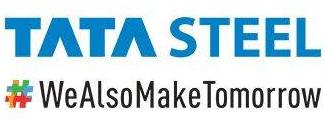TBB BUREAU
Bhubaneswar, June 30, 2021
In line with the decadal theme of Ecosystem Restoration as declared by the United Nations, Tata Steel has celebrated the month of June as ‘Sustainability Month’.
At Tata Steel, the philosophy of its operations is deep-rooted in the principles of zero harm, resource efficiency, circular economy, minimising ecological footprint and care for the community and workforce. The sustainability approach of the Company is aligned with its overall vision to be the industry leader in the areas of Climate Change, Water, Waste and Biodiversity. Underpinning this approach are strategies on low-carbon transition, reducing dependence on freshwater consumption, maximising value from waste and exploring opportunities in the circular economy, enhancing biodiversity in areas where the Company has its operations, building a sustainable and resilient supply chain and customer-focussed product stewardship.

Over the last few years, Tata Steel has made considerable progress on several environmental parameters. They include 100 per cent solid waste utilisation and more than 40 per cent reduction in specific water consumption at its steel plants in Jamshedpur and Kalinganagar.
The Company has taken measures towards attaining the UN Sustainable Goals and the same is reflected in its long-term strategy and revised sustainability targets. For its operations in India, it aspires to reduce its carbon emissions to < 2 tCO2/tcs by 2025 by adoption of best available technologies, mitigate dependence on fresh water by lowering specific fresh water consumption to <1.5 m3/tcs by 2030, enhance value proposition on circular economy and scale up the steel recycling business by 2030.
The steel industry globally is moving away from carbon-intensive operations. The costs of carbon provisions are increasingly becoming higher globally. Tata Steel is also focussed on transitioning to lower carbon-intensive operations. The Company’s recent foray into the steel recycling business is primarily aimed at promoting sustainable steelmaking and creating a circular economy for steel. The Company’s first state-of-the-art scrap processing plant set up at Rohtak, Haryana, is primarily a sustainability initiative that is important for the country and the Company in the light of Sustainable Development Goals. It could well be a precursor to the Company producing steel in India through the recycling route. It is clear that, as we go along, to make steel, more and more steel scrap will be used and not iron ore. Going forward, Tata Steel plans to set up steel recycling businesses in Western and Southern India and forward integrate them to produce Tata Tiscon rebars.
The Company is a signatory to the Task Force on Climate-related Financial Disclosures (TCFD) for climate change and has identified transition risks and opportunities to decarbonise operations over a period of time. Specific mitigation and contingency plans for each of the identified risks have been integrated within the Company’s long-term strategy.
The continued focus on ‘Sustainability’ has helped the operations of the Company, in India as well as Europe, to be recognised as Sustainability Champions by World Steel Association for four consecutive years. Recognition of Tata Steel Group by CDP in Leadership band (A-) for climate change disclosures is testimony to the Company’s long-term commitment to climate change mitigation and adaptation. The Company ranked amongst the top-5 global steel companies in Dow Jones Sustainability Indices (“DJSI”) Corporate Sustainability Assessment 2020 and retained its position in the DJSI Emerging Markets Index for the 9th year in a row.
 The Business Bytes
The Business Bytes
